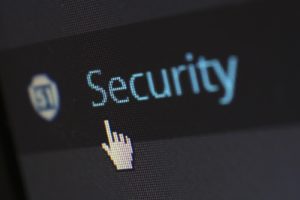 When COVID-19 hit the world’s economy, businesses attempted to acclimate to the new normal as best they could. And with shutdowns common across nations and industries, the only way for many to still conduct business was through a shift to remote work. This shift has allowed many to keep their jobs and provide valuable services for communities across the world. However, the increased reliance on technology also comes with added risks.
When COVID-19 hit the world’s economy, businesses attempted to acclimate to the new normal as best they could. And with shutdowns common across nations and industries, the only way for many to still conduct business was through a shift to remote work. This shift has allowed many to keep their jobs and provide valuable services for communities across the world. However, the increased reliance on technology also comes with added risks.
As companies now struggle to provide cybersecurity while their employees increasingly access data from homes and private networks, cybercriminals have additional avenues of entry. In a centralized office location, encrypted services for company data kept risks relatively low. Now, mobile devices need to interact and modify data from anywhere.
Luckily, companies can still keep data secure, even as reliance on technology and remote access increases. The shift to remote work is changing the scale and scope of mobile security. However, with cloud-based cybersecurity solutions, your employees can connect safely from anywhere.
The Shift to Remote Work and What it Means for Cybersecurity
With some companies reporting an average of about 75% of their workforce now working from home, cybersecurity solutions need to be prepared to handle the challenges of remote workspaces. This means efficient approaches to secure logins and data transfer.
Securing Logins
Remote work adds a level of unpredictability to the devices employees log in from. While workers manage their daily lives while attempting to maintain a work schedule, they need to be able to log in from anywhere. This makes authentication especially important.
By verifying the user through more than one step, companies can better ensure the security of data. That’s why effective cybersecurity solutions utilize 2-factor authentication features alongside a strict password and login techniques for data security. 2-factor authentication requires that a user also receives a code through a trusted email or phone number, in addition to inputting the correct password. This ensures that cybercriminals who have phished for the right data still cannot log in where they are not authorized.
Securing Data Transfer
Cybersecurity in a remote-work environment also means secure data storage and encryption platforms. You need your data to be accessible to your employees while inaccessible to anyone else. This requires cutting-edge encryption and firewalls that prevent unauthorized access, search-engine indexing, and data crawlers.
Cybersecurity software enables businesses to manage and adjust authorization and access settings. This allows for secure data transfer procedures that show exactly who accessed private information and when it was done. Which makes for better and smarter security tools. Artificial intelligence is one such tool, often used in cybersecurity to scan endpoints for data breaches.
As we become increasingly reliant on technology, the need to integrate better and better cybersecurity tech becomes essential.
Protecting Data from Anywhere
Luckily, cybersecurity solutions exist currently that fulfill all the needs of a remotely working business. MeisterTask, for example, offers secure task management with 2-factor authentication, data encryption, and cloud data services that are trusted and verified.
With an increasing need for remote-work solutions, enhanced authentication and data transfer are essential. Cloud cybersecurity options offer these solutions and more for a more tech-reliant workspace.
Cloud Cybersecurity Solutions
Beyond authentication and data transfer are the needs of businesses to accommodate features and functions safely across the cloud. As technology adapts to enable the needs of businesses and consumers from home, companies need to build in these features with cybersecurity at the forefront of their approach.
Customers trust businesses to store and manage their data securely. This means a system of constantly innovated cybersecurity solutions while offering features like the following:
- Verified and restrictive access controls
- Comprehensive data storage for all your data needs
- Collaboration tools on a secured network
- File versioning
- Syncing capabilities to keep data current across user access
Effective security allows for the encryption and moderation of all these features to make remote-work a possibility. Without these digital tools, consumer data would be always at risk.
Though the digitalization of information onto a cloud service can present risk, there are many ways in which technology also eliminates risk. Document analysis and e-signatures make for faster, trackable verification. Meanwhile, file versioning and access tracking allow for analysis of endpoints for unauthorized entry. AI software tools can then better find and predict breaches, stopping them in their tracks.
Though the future of business may look to decentralize platforms like blockchains to secure data through cryptographic hashes, cybersecurity solutions through cloud-based services are here now. These services encrypt data at the transference level, ensuring access only to the properly authorized individuals. Like blockchain, modern cloud solutions enable safe storage of all company data to meet and exceed compliance standards, bringing certification and authenticity to the much-needed workspaces of home offices and coffee shops.
Cloud data systems can bring your business data to your employees wherever they are. This is often achieved by housing the data on multiple mainframes in various locations. This ensures that no matter what happens, your data will be backed-up. Storing data at a worksite may become a trend of the past with workers logging in from everywhere. Why bother maintaining a server when you can use a data cloud service that encrypts and secures your company data for you?
Data services protect and host all your company’s needed information through these essential security benefits. In turn, you don’t have to deal with managing a server and all the IT problems that can come with it.
As teams work from all over the world, the integration of a cloud security system that can scan, update, and authorize files on the fly is a necessary component of modern business. By enhancing both accessibility and security, these systems offer incomparable value in today’s remote-work environment.
Safely Connect from Anywhere
Security is a huge concern for every business. With the constant threat of cyberattacks and data breaches that cost $3.86 million on average, according to an IBM report, no business can afford to go without a reliable data security approach.
Keeping your company data secure means integrating security software that can encrypt, protect, and backup your data at all times. With features like 2-factor authentication, network security across IP addresses and devices, and protection against data loss through cloud and location-based backup, your data can heave that security.
In a world in which reliance on technology is more common and necessary than ever before, comprehensive cybersecurity solutions should be the focus of every business. Fortunately, software exists to give businesses security and peace-of-mind in the management, storage, and transfer of data.



0 Comments